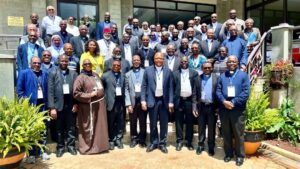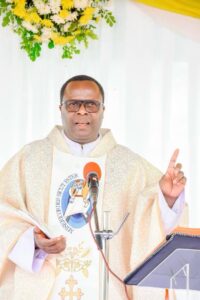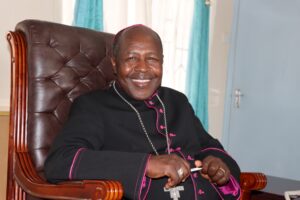SYNOD-SECAM: “The Church is Going Back to Her Roots,” Muslim and Presbyterian Delegates at Continental Synod Assembly
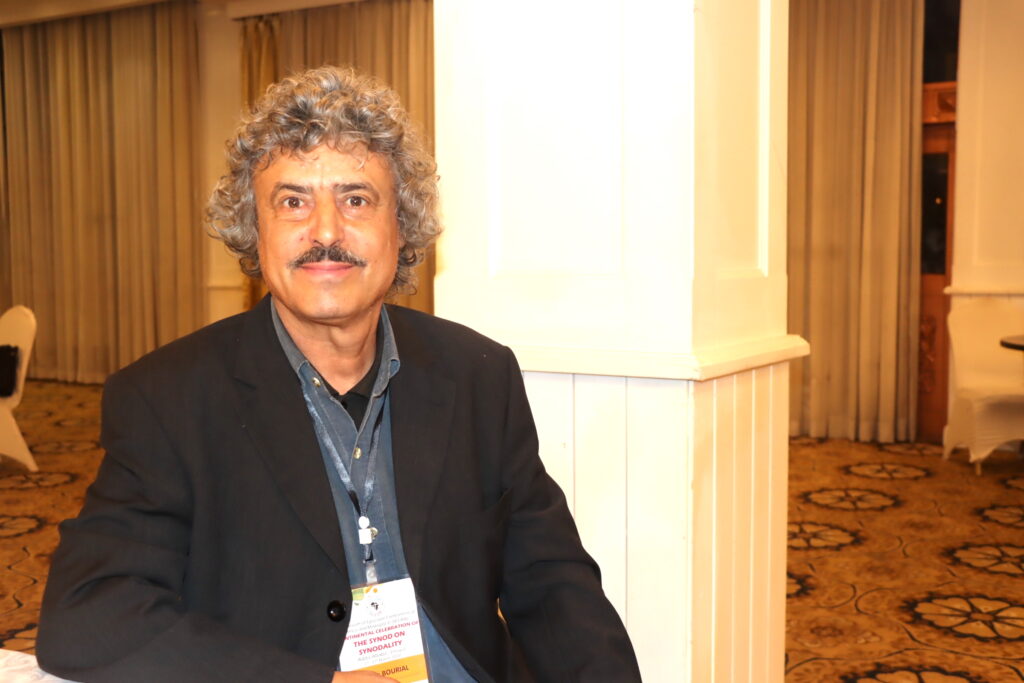
Mr. Hatem Bourial Muslim Delegate from Tunisia. Credit; AMECEA Online
Sr. Jecinter Antoinette Okoth, FSSA
Delegates from other faiths and religion who attended the just concluded continental synod assembly in Addis Ababa, Ethiopia have appreciated their involvement in the Catholic synodal process noting that the Church is going back to her roots.
The ongoing synod of bishops which commenced in 2021 and will end in 2024, runs under the theme: “For a synodal Church: Communion, participation and mission,” hence the week-long continental assembly for Africa brought together 209 participants comprising of young people, the laity, delegates from other faiths, religious men and women, clerics, bishops and Cardinals.
“Being involved in this synod means a lot to me because as I sat with a group of ten people sharing, exchanging ideas, trying to improve the whole process and bringing some recommendations to this open idea of inclusivity, for me it is something that is bringing us back to the roots of the Church,” Mr. Hatem Bourial from the Muslim religion shared with AMECEA online in an interview.
According to the Tunisian-born delegate, involving people from other faiths and religion in the synodal process is a historical.
“When I think of the roots of the Church, I think of myself visiting with friends and foreigners the different cathedrals and the Carthage that used to exist in the past centuries,” Bourial recounts his early years adding that being part of delegates in Ethiopia, “Gives me a feeling of how the people were living in this early church that we call in Tunisia Paleo-Christian where we have so many artifacts connected to the early church, especially tombstones. So, being included in such a group, it means a lot to me because it is a way of including the people who are not of the same community.”
Mr. Bourial has appreciated the fact that the Catholic Church is liberal and open to whoever can contribute towards the good of the ongoing synod saying that “this is how we can work together and build peace and understanding and also involve people in a construction process.”
He acknowledged the methodology used in the synod process which is spiritual conversation that allows individuals to reflect and share thoughts freely.
The man who has interacted closely with the Catholic Church for quite some time right from childhood when he learnt in a Catholic school and currently organizes seminars in Tunis Archbishop Library says, the idea of inclusivity “is quite interesting thinking about what the path is about and the methods that are very participatory.”
“This is a very modern approach and it is integrating all those who want to speak a loud whatever they have,” (actually) the method is kind of saying that every single word is precious, every single person has something to say and it is time to listen to everybody,” he said.
Mr. Bourial’s intention is to write article about his synodal experience, the interaction in Ethiopia, the entire process, reflect more about the inclusion and share the writings with friends.
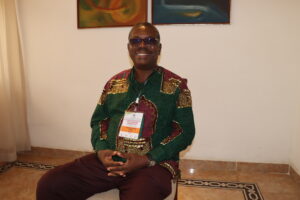
On his part, Mr. Ludwig Annang Hesse from the Presbyterian Church of Ghana echoed the words of Mr. Bourial appreciating the inclusivity and openness of the Catholic Church.
“The synodal system is an interesting one as we have known the Catholic Church to be Episcopal in nature unlike the Presbyterian Church where we have the right to democracy on the way we do business since the decisions are made by the General assembly or council,” Mr. Annang said.
He appreciated joining the Catholic Church and being part of the synodal process to talk about what may seem a concerns to the Church but which he says “Is more the ministry of Christian other than Catholics only.”
“This synodal system in the Catholic Church sounded new to me when I first heard it, but I have loved the process especially the spiritual conversation concept which I think is part of democracy. That is the concept of getting ideas and involving everyone to have a say,” the lay representative on the General Assembly Council of the Presbyterian Church of Ghana shared with AMECEA Online in an interview Saturday, March 4.
Mr. Annang who has been the children’s service teacher in the Presbyterian Church of Ghana for 45 years, disclosed that ecumenism is strong in the country since those from the “Protestant Churches, Pentecostal Churches, Charismatic Churches and the Catholic Church normally come together to address common issues such as peace building and LGBTQ “Lesbian, Gay, Bisexual, Transgender and Queer.”
He acknowledged that before attending the continental synod meeting in Ethiopia which was from 1-6th March, the identified delegates had two zoom meetings where they were enlightenment about the synod process and issued with the working document to read and understand more about the synod.
Mr. Annang appreciated the synod process which has accommodated all as brothers and sisters and the methodology which he says “can be applied at a wider scope.”
From his experience the local church is already undergoing change and even though the real test is to be realized after 2024, “One cannot go through a four year process and remain the same.”
